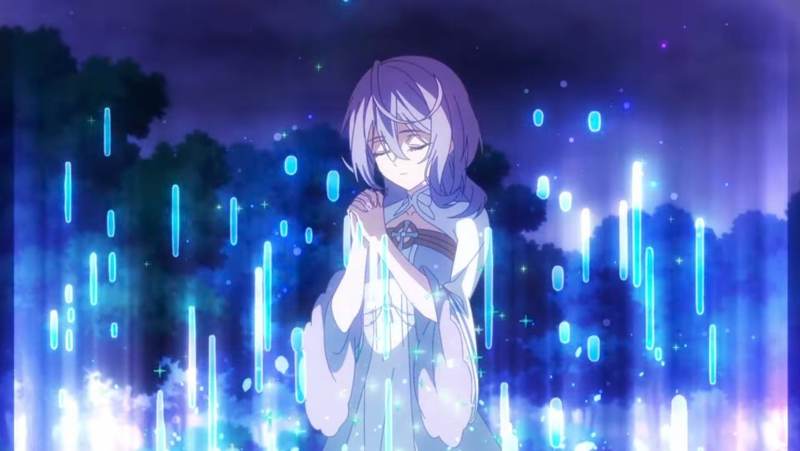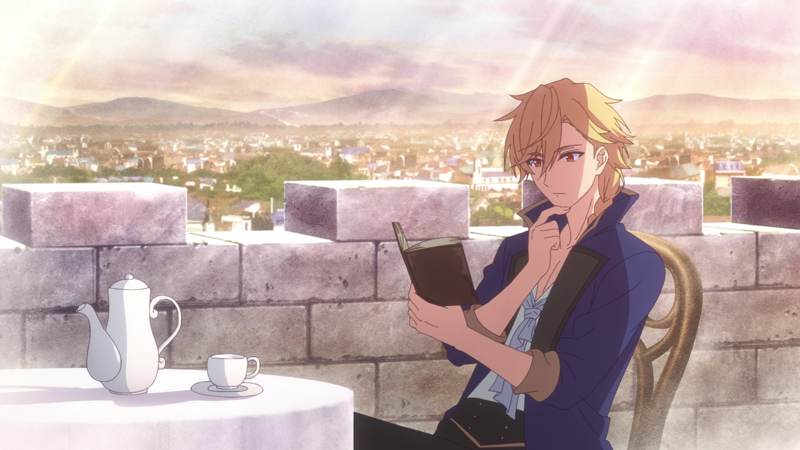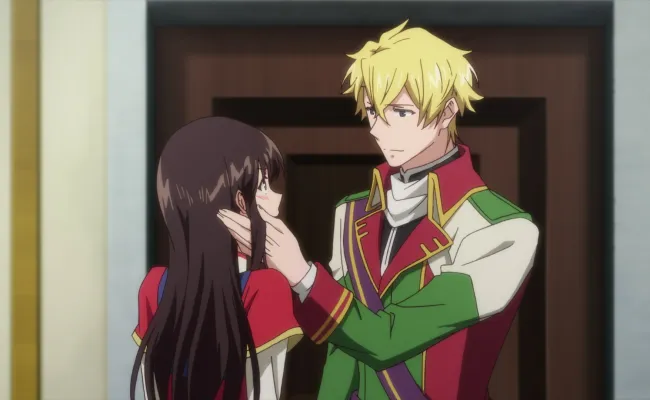I grew up reading high and dark fantasy, such as The Wheel of Time, Conan the Barbarian, Shannara, and so on. As a 1980s-1990s kid/teen, I consumed cheesy sword-and-sandal films like Ator: The Fighting Eagle, hair-metal music videos like Dio’s Holy Diver, Choose Your Own Adventure books, and other fantasy. I never got into Dungeons and Dragons and Magic the Gathering, if you are wondering. I didn’t (and still don’t) have time for those. So while many anime and manga fans go on about Berserk‘s dark fantasy themes, Berserk hit the same stuff I read in some of the darker pulp-fantasy books. And, considering my fantasy-story background, when I saw a shojo fantasy anime on Crunchyroll, I had to watch it. It’s good to consume stories outside your tastes sometimes.
The Too-Perfect Saint: Tossed Aside by My Fiancé and Sold to Another Kingdom, beyond offering a title which summarizes some of the story, certainly contrasts against the fantasy I grew up with. Spoilers ahead!

In this world, saints with holy magic powers keep monsters under control and otherwise underpin the economies and security of each nation. The protagonist, Philia, is one of these saints. After enduring a childhood of difficult, strict training at the hands of the previous saint (who turns out to be her mother) and the fact she is the reincarnation of a previous, powerful saint, gives Philia far greater powers than other saints. No, this isn’t an isekai. Philia lives with her younger sister, Mia, who is favored by her parents over Philia. Considering Philia isn’t their actual daughter, the story has a Cinderella situation. Only Mia adores and emulates Philia. Philia is engaged to the Prince Julius Girtonia, who envies Philia’s abilities, respect within the kingdom, and resents how she was healing his father. Julius works to isolate his older brother and let his father die in a passive power-grab. Julius is selfish, petty, and generally a small man rather than being a mastermind. He sells Philia to the neighboring kingdom of Parnacorta who had lost their saint and was suffering under a monster infestation. Julius prefers Mia, who is also a saint, over Philia so the maneuver gains him money, removes Philia, enables his passive power grab, and allows him to court Mia. Mia, however, isn’t a pushover. Once she learns about Philia being sold to Parnacorta, Mia takes Philia’s place as saint and works to exact revenge on Julius by healing the king and returning the Crown Prince to power.

Meanwhile, Philia goes to Parnacorta where she’s immediately respected by the royal family and fretted over by her attendants. Her attendants worry about her extreme work ethic. The second prince, Osvalt, works to ease Philia’s transition into the kingdom and eventually comes to care for her. Philia, for her part, hasn’t had people beyond Mia care about her welfare. She’s stoic and compassionate but never smiles. Think Violet from Violet Evergarden or Data from Star Trek: The Next Generation. She dealt with all the Cinderella-esque abuse with dignity and stoic acceptance, but Parnacorta’s good treatment confuses her. She eventually works with the saints of the neighboring kingdsom to cast a continent-wide monster-weakening spell, but she isn’t able to contact Mia because of Julius. Julius, for his part, falls under the influence of demons working to free the titular demon king Asmodeus from his seal. Asmodeus and the underworld are the source for the monsters which cause problems for the kingdoms. Asmodeus happens to love the saint which had sealed him away centuries before, the same soul Philia contains–Fiana. Philia, Osvalt, Mia, and friends confront Asmodeus who tries to transfer Philia’s soul into a homunculus he made of Fiana.
The stakes for The Too-Perfect Saint never feel high. Mia’s revenge story consists of letting Julius metaphorically hang himself, which is a rather clever side-story even if Julius too too much a Snidely Whiplash villain. He is realistically petty, but his behavior falls into cartoony. Although the plot is soft on threat, it remains interesting. I’m partial to Violet or Data style characters, and Philia fits the trope. She’s thoughtful and strategic–not acting without first thinking through the actions and consequences. It’s refreshing, and her intelligence proves more of an overwhelming power than her holy saint powers. The villains cannot stand up to her brainpower. Asmodeus is mildly powerful, but he appears too late into the series, even if he is foreshadowed, and so doesn’t feel like a true threat. But the story’s focus is on Philia’s journey from exploited to loved and her own inner opening. In the final scene, Osvalt confesses her love for her, and she cries and smiles with joy–the first time she does either. She also admits that she loves him. The love thread between them is…fine. It doesn’t feel well-developed but it’s plausible enough to work.

The Too-Perfect Saint offers soft fare. It’s…fine. But then this story isn’t aimed at someone who grew up with dark fantasy. Julius doesn’t murder or otherwise make any hard moves. He keeps Philia’s medicine away from his father to let nature run its course, and allows his elder brother to waste away from depression and anxiety. It’s a realistic, plausible denial move. This method allows Julius to rise to power in a way that appears legitimate. In dark fantasy, he would’ve resorted to violence.
The Too-Perfect Saint is refreshing. It takes a different angle from the fantasy stories I grew up reading and watching. Perhaps most importantly, the story moves away from isekai and villainess plots. Philia may be a reincarnation, but she’s a reincarnation according to her own world’s rules. The Too-Perfect Saint begins with Cinderella story beats and moves beyond them. As a character, Philia is interesting if you enjoy the closed-stoic to-more-human-but-still-stoic trope. The story shows her less-emotional and more intellectual character is valuable and good. People accept her as she is, even if they fret over her working too much. They don’t push her to become extroverted. The story points to how you don’t have to be extroverted to be respected and loved. The Too-Perfect Saint is fine. It’s not great nor terrible in animation quality. Character designs and world-building are fine. The Too-Perfect Saint stands as a middling story, but a refreshing one for someone like me (who is not the story’s demographic) who has read and seen a lot of dark and cheesy-dark fantasy.





